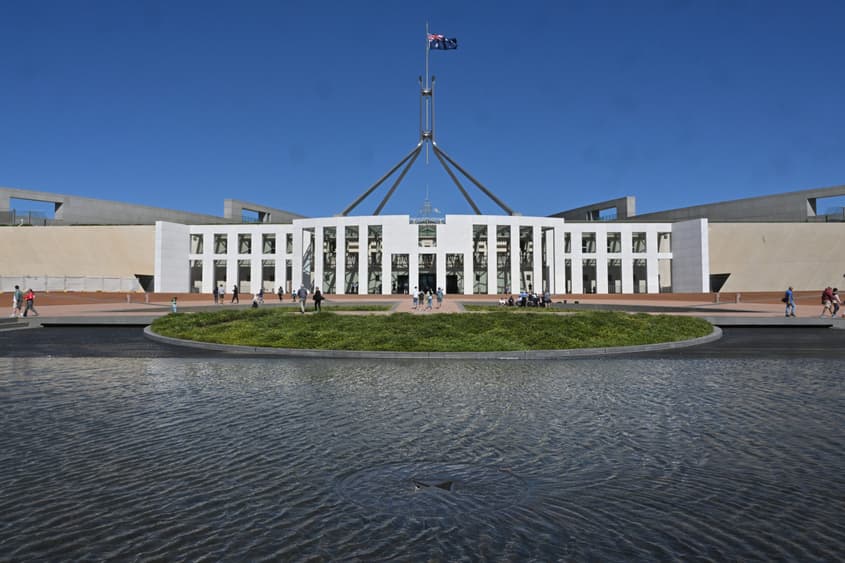
Photo: AAP Image/Mick Tsikas
This year, the Federal Government has proposed two economic reforms. The first, a campaign to stimulate productivity improvement, risks being diverted to increasing business profits at the expense of working conditions without actually improving productivity. The second, modest improvements to the superannuation scheme, will make the system fairer for low-income workers while maintaining huge subsidies to the rich.
Neither reform is central to social justice issues faced recently by workers and citizens generally: high interest rates, high and increasing rents and house prices, and declining real wages. The gaps in income and wealth between rich and poor are increasing.
Neither reform weakens the economy’s role in driving existential threats to civilisation from the destruction of our life support system, the natural environment. As global economic activity has increased, seven out of nine planetary boundaries – including climate change, biodiversity loss and freshwater loss – have been exceeded.
Even within the existing economic system, vast improvements could be made. To combat climate change, federal and state governments could end the $14.5 billion per annum subsidies to the production and use of fossil fuels and re-introduce a carbon price. People on low incomes could be compensated with either direct annual payments or reduced income tax together with an increase in the JobSeeker payment.
As people with the highest incomes and wealth are responsible for most greenhouse gas emissions, there’s a strong case for increasing marginal tax rates on high incomes, taxing capital gains, and introducing wealth and inheritance taxes. Within the conventional economic framework, these policies would raise revenue for the Government to spend on climate mitigation. In addition, they would reduce spending, and hence emissions, by the rich.
One of the driving forces of environmental destruction and social inequality is the dominant economic system, capitalism, especially its extreme version neoliberalism. The latter is the ideology that governments and taxes should be small and the major socioeconomic decisions should be left to the market.
Despite its failures during the Global Financial Crisis of 2008 and the COVID pandemic, neoliberalism is still influential. During these crises, the Australian Government had to create and spend hundreds of billions of dollars to keep the economy afloat, contrary to neoliberal ideology, but afterwards returned to the old system.
Seven radical changes are needed to create an economics that serves planet and people:
1. The primary goals must become environmental protection, social justice and human wellbeing, displacing economic efficiency, the stated goal of neoclassical economics, to fourth place.
2. The economic ideology and practice of endless growth on a finite planet must be rejected. At one conceptual level, environmental impacts are driven by affluence (economic activity per person), population size and technological impact. Growth in affluence is strongly correlated with growth in consumption per person of materials and energy.
While growth continues, improvements in efficiencies in materials and energy cannot generally result in absolute reductions in impacts. New schools require buildings, equipment and the outputs of data centres. Even growth in energy consumption that’s produced entirely from renewables consumes materials and indirectly drives more industry, resulting in more environmental impacts. Therefore ‘green growth’, while better than ‘brown growth’, is inadequate.
3. The rich and rapidly growing economies must reduce their use of energy, materials and land, and stabilise their populations. After improving efficiencies, the next step is the design and implementation of a circular economy, with much greater emphasis on reuse, recycling, re-design and re-manufacture. The production of harmful goods and services can be reduced by a combination of pricing and regulation.
4. The wellbeing economy must be introduced with a set of indicators of the status of, and policies for, environment, social justice, human rights, democracy and peace. This goes beyond the present Government’s small step.
5. Government must provide universal basic services (UBS) such as public health, education, housing, transport, and low-cost aged care and childcare.
6. Neoliberal ideology, that major policies and projects be left to the ‘free’ market, must be rejected. The market is controlled to a large degree by the 1%: rich individuals and large corporations. Contrary to neoliberal ideology, wealth does not generally trickle down from the rich to the poor. Therefore, government intervention is needed to provide UBS and higher payments for the unemployed.
7. The Federal Government must fund a job guarantee for all who wish to work. Jobs in caring for the environment and people, that are not provided by the market, would be provided by local governments and registered community-based non-government organisations.
These proposed changes to the economic system would be resisted by vested interests. Nevertheless, if the benefits could be communicated widely, the transition could receive strong voter support.
Dr Mark Diesendorf is Honorary Associate Professor of Environment & Society at UNSW Sydney and author with Rod Taylor of ‘The Path to a Sustainable Civilisation’ (Palgrave Macmillan, 2024).